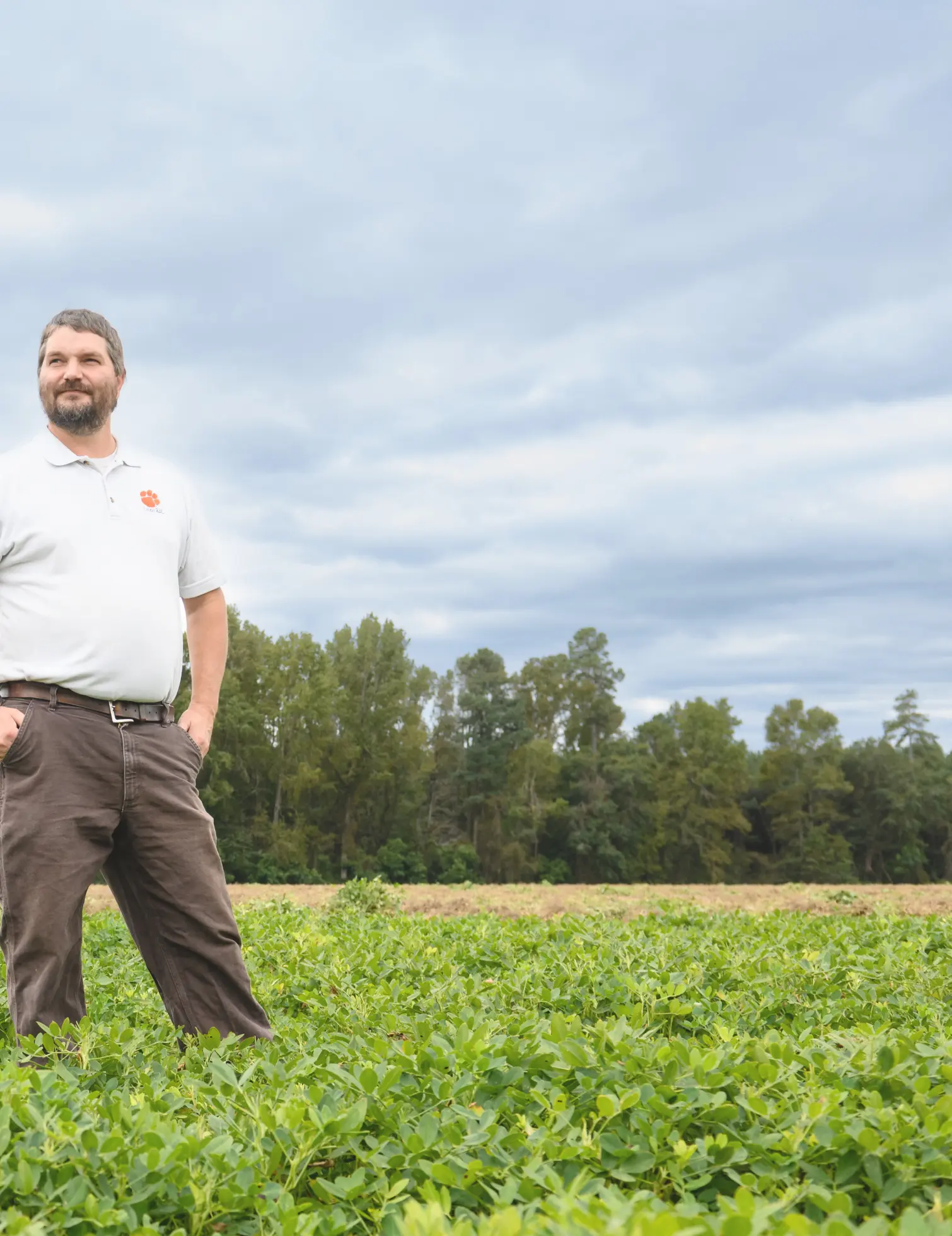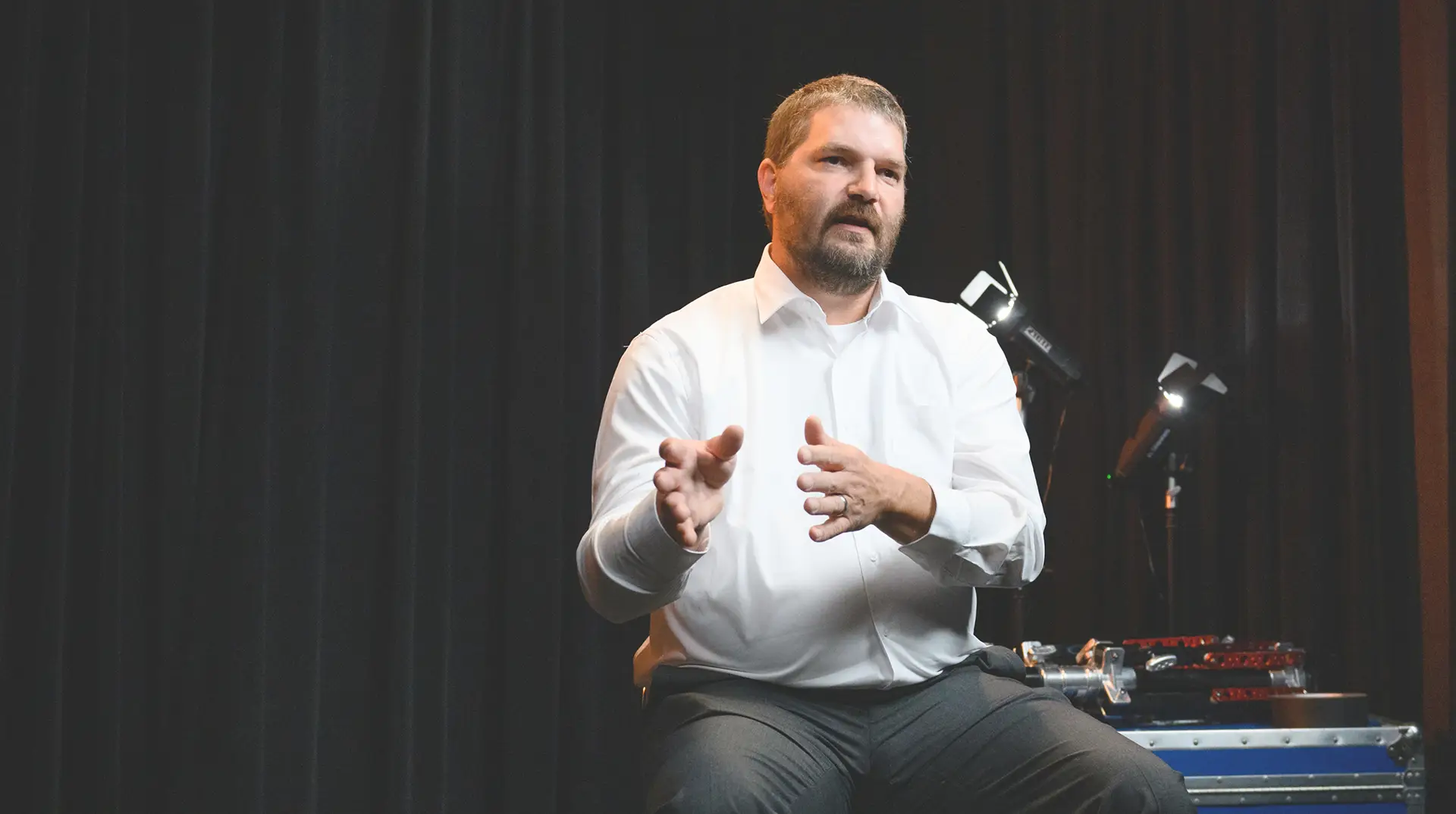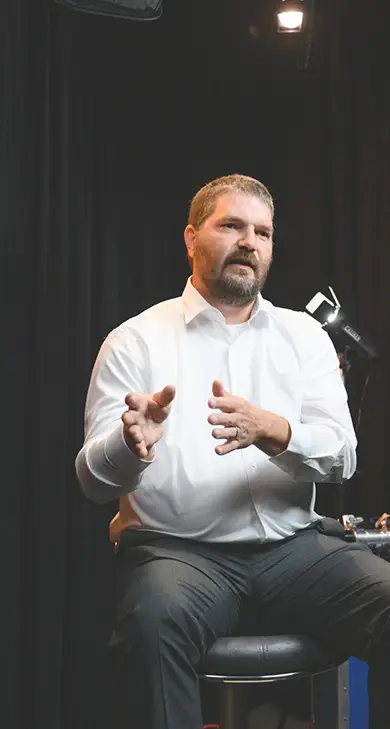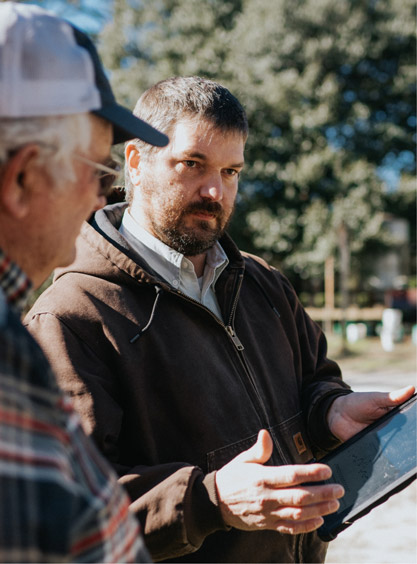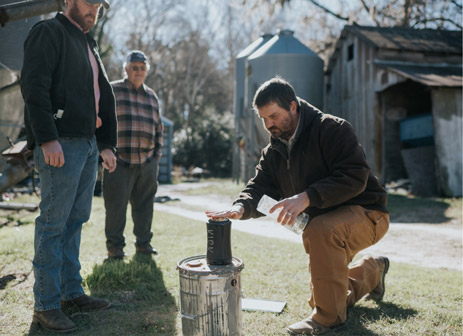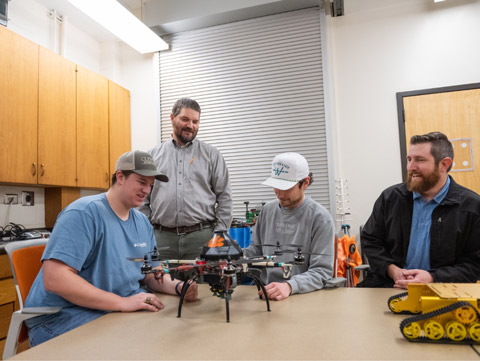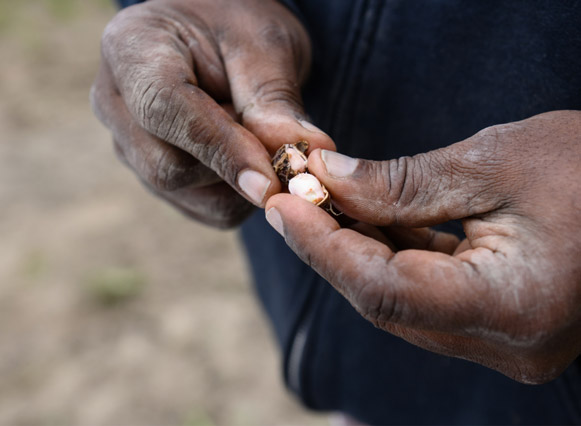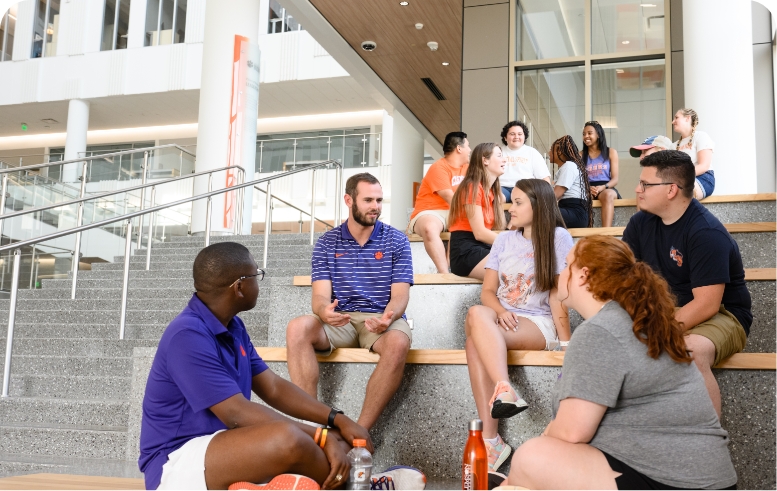Good farming is good business
Clemson professor Kendall Kirk considers himself as much a lifelong learner as he does a professional educator. And for nearly three decades, the subject of both his instruction and his inquiry has been the same: farming.
Kirk serves as a precision agriculture engineer for Clemson, and he is director of the University’s new Center for Agricultural Technology, CU-CAT. Both his engineering expertise and his director role support South Carolina’s farmers through similar methods: outreach, education and the development of new technology.
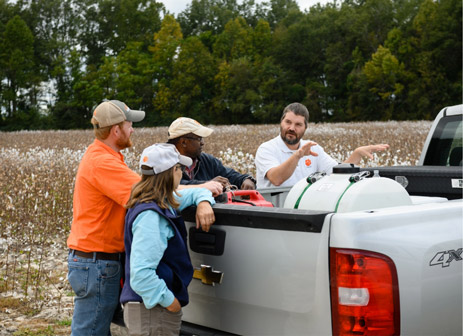
Kirk connects farmers with new technology that provides concrete answers where estimates once had to suffice. The goal of his collaborations is simple: stronger farms and more sustainable farming practices to feed a growing state and world.
“We have an opportunity to work with farmers to investigate new technologies and help them learn new technologies that they might not have even been aware of.”
 Farming: An outdoor job
Farming: An outdoor job
The bulk of Kirk’s work has always happened outside the confines of a traditional classroom. A three-time Clemson grad, he remains a teacher at heart, even leading Boy Scout activities and Sunday school classes in his spare time.
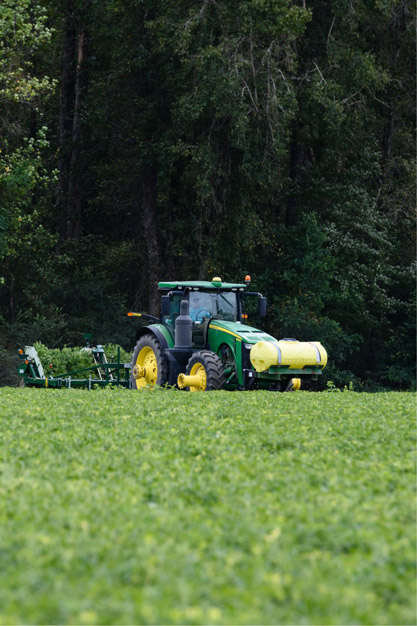

Kirk’s role has him based out of the University’s Edisto Research and Education Center, which is located in South Carolina’s coastal plain. The Edisto REC has more than 2,300 acres of row crop, pasture and forest land. The REC, along with hundreds of thousands of acres of South Carolina farmland, is Kirk’s classroom, lab and conference room because it’s here that he’s forging solutions. He works with farmers and for them so that future generations can feed the state and the world sustainably and economically.
Did you know?
Scientists at the Edisto Research and Education Center (REC) located in Barnwell County have conducted research on agricultural production practices since 1937. Today, the main research focus at Edisto REC is precision agriculture, where temporal and spatial data are used to drive agricultural management decisions.
